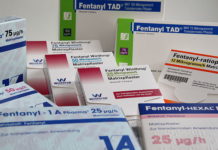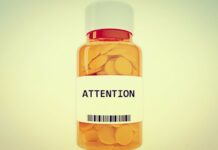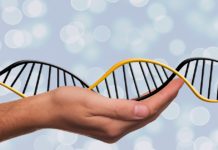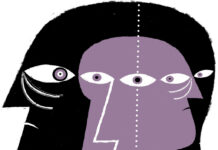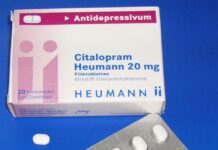Study Explores Sexual and Intimate Partner Violence in College Women with Disabilities
A new study explores sexual violence and intimate partner violence in college women with mental health related disabilities.
Being Bullied by Age Eight Linked to Depression in Adulthood
There is a growing body of evidence suggesting that being exposed to bullying in childhood can contribute to mental health problems later in life. In a new study, published in JAMA Psychiatry, the researchers found that children who reported being bullied at age eight were significantly more likely to seek treatment for mental health problems by age twenty-nine.
Study Examines Overdiagnosis of Mental Health Disorders in Childhood
Are diagnoses of mental disorders among children and adolescents in developed countries disproportionate to disease prevalence trends?
Researchers Find Bias in Industry-Funded Continuing Medical Education
Industry-funded continuing medical education (CME) influences physicians to prescribe more opioids, focus less on the consequences.
Teacher Wellbeing Matters for Student Mental Health
Teacher’s personal wellbeing plays a role in students’ mental health outcomes, suggests a new study.
Methylphenidate: How to Avoid Importing the American Disaster?
Even though it is extremely unlikely that in France we would reach the kinds of percentages we see in the USA, where in some states nearly 10% of children are treated with methylphenidate or other psychostimulants not used in France, overprescription is highly probable. Why?
Madness and the Family, Part III: Practical Methods for Transforming Troubled Family Systems
We are profoundly social beings living not as isolated individuals but as integral members of interdependent social systems—our nuclear family system, and the broader social systems of extended family, peers, our community and the broader society. Therefore, psychosis and other forms of human distress often deemed “mental illness” are best seen not so much as something intrinsically “wrong” or “diseased” within the particular individual who is most exhibiting that distress, but rather as systemic problems that are merely being channeled through this individual.
Reforming Schools to Prevent Mental Health Issues
New research explores the use of broad-based school-integrated resiliency and mindfulness interventions to prevent mental health concerns before they occur.
Scientists Clarify Risks of Augmenting with Antipsychotic Medications for Depression
The researchers found that while antipsychotic drugs may be slightly more effective than alternative antidepressants, they come with a much higher side effect burden.
It is Time to Abandon the Candidate-Gene Approach to Depression
The candidate-gene approach to depression goes unsupported and is likely based on bad science, new research finds.
How to Involve Youth in Their Own Mental Health Care
Clinicians play a key role in empowering adolescents and their parents to make decisions about their mental health treatment.
Long-term Usage of ADHD Drugs Linked to Growth Suppression
Findings suggest that treatment not only fails to reduce the severity of “ADHD” symptoms in adulthood but is associated with decreased height.
Robert Whitaker Missed the Mark on Drugs and Disability: A Call for a Focus...
Robert Whitaker extended one of his core arguments from Anatomy of an Epidemic in a blog post last week. His argument revolves around the claim that psychiatric drugs are the principal cause of increasing psychiatric disability, as measured by U.S. social security disability claims. But does this really explain the rise in recipients of these SSI & SSDI benefits?
Study Connects Environmental Risk Factors and Psychosis
A meta-analysis of known risk factors for psychosis finds elevated risk with the presence of childhood trauma, adverse life events, and affective dysfunction.
Countervailing Forces Against Ritalin Use in France
A new study in the journal Social Science and Medicine explores why French children take stimulants far less than children in the United States. The study looks at how particular forces in society, in concert with government agencies, became an effective check on stimulant marketing for kids in France.
Quotations From the Genetics “Graveyard”: Nearly Half a Century of False Positive Gene Discovery...
In a 1992 essay, British psychiatric genetic researcher Michael Owen wondered whether schizophrenia molecular genetic research would become the “graveyard of molecular geneticists.”1 Owen predicted that if major schizophrenia genes existed, they would be found within five years of that date. He was optimistic, believing that “talk of graveyards is premature.”2 Owen now believes that genes for schizophrenia and other disorders have been found, and was subsequently knighted for his work. Despite massively improved technology, however, decades of molecular genetic gene finding attempts have failed to provide consistently replicated evidence of specific genes that play a role in causing the major psychiatric disorders.
The Proactive Search for Mental Illnesses in Children
Part one of a two-part Mad In America investigation into the expansion of psychological screening and electronic surveillance of children and youth. A new government-funded mental health training program for British Columbia family physicians and school staff promotes screening for mental disorders in all children and youth. Critics say the program omits key scientific evidence, seems more like drug promotion than medical education, and downplays serious potential harms. Nevertheless, programs like it are rolling out across Canada and the US.
Interview: Researchers Deconstruct Ghostwritten Industry Trial for Antidepressant
Researchers, Jon Jureidini, Jay Amsterdam and Leemon McHenry, have taken a closer look at the data from a randomized control trial of citalopram (Celexa) that was ghostwritten and then used by the manufacturers to support claims of the drug’s efficacy and safety in the treatment of child and adolescent depression. To get the background on this story, we connected with Dr. Leemon McHenry, an investigator in this study and a lecturer in philosophy at California State University, Northridge.
The Genetics of Schizophrenia: A Left Brain Theory about a Right Brain Deficit in...
In recent months, two teams of researchers in the UK and the US published complementary findings about the epigenetic origins of schizophrenia that have scientific communities who indulge in ‘genetic conspiracy theories’ abuzz. While these results are intriguing, and no doubt involve pathbreaking research methodologies, this line of thought represents a decontextualized understanding both of the symptoms that are typically associated with schizophrenia, and their causes.
“ADHD: A Return to Psychology” Video Series
Most people believe that children diagnosed with ADHD misbehave because they possess an inferior inhibitory system that renders them less able to suppress unacceptable actions. However, this belief has numerous shortcomings. This series of videos challenges these assumptions and offers alternative explanations for why a child may exhibit ADHD behaviors.
Reflections on a Pathologized Adolescence and a Vision for the Future
My heart envisions a future of grassroots community-based, free, accessible, welcoming, non-judgmental and safe spaces for young people in the middle of the hurricane of adolescence....They will be spaces facilitated by those of us who’ve reclaimed what it means to be human.
Anxiety: The Price We Pay for Consciousness
In his NY Times article “A Drug to Cure Fear,” Richard Friedman noted: “It has been an article of faith in neuroscience and psychiatry that, once formed, emotional memories are permanent.” This has not been a principle of these disciplines, including clinical psychology, for many years. Consolidation-reconsolidation-extinction models have been around for some time now, applied in particular to persons suffering from traumatic memories; e.g., Holocaust survivors, war and genocide survivors, etc.
Part VI: How Adult Society Betrayed Michelle Carter and Conrad Roy
The story of Michelle Carter and Conrad Roy is not only a tragedy within itself and for all those involved with them, it is emblematic of the situation faced by millions of young people in the western world and increasingly around the entire planet. Final installment in the series.
New Findings Suggest Masculinity is a Risk Factor for Suicidal Thinking
Men who report being self-reliant may be at greater risk of suicidal thinking.
Meta-Analysis Ties Gray Matter Loss to Antipsychotic Dose
Antipsychotics are currently the predominant treatment for individuals diagnosed with schizophrenia, but there is an accumulating body of research that links the use of these drugs to structural abnormalities in the brain. A recent meta-analysis suggests that gray matter loss in the brain may depend on the dose and class of the antipsychotic.




